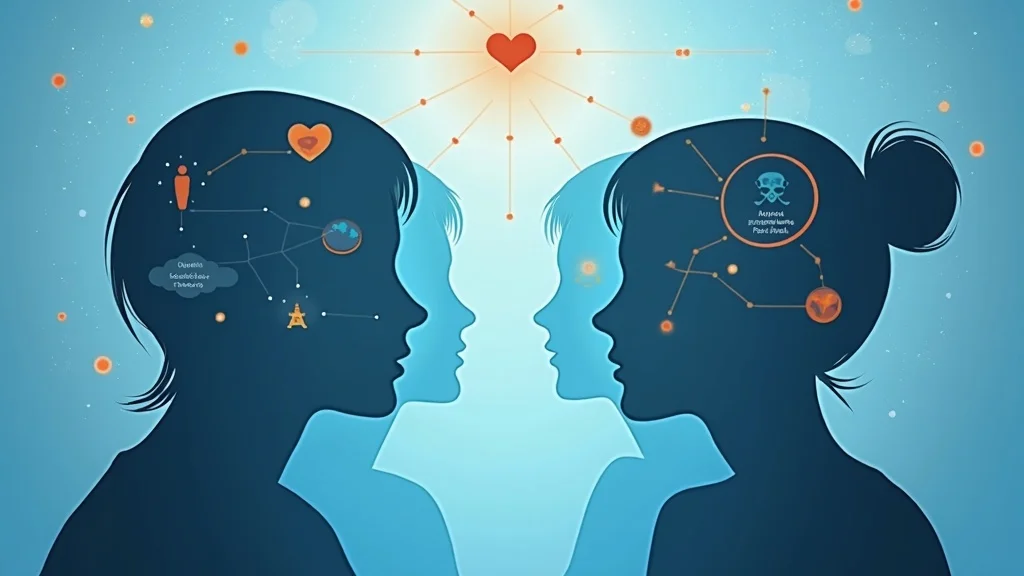When someone abuses their spouse or partner, the harm does not end there. If the person experiencing abuse is a parent or caregiver, their children are also affected — especially if they live in the home where it’s going on or if they see it happening.
Witnessing a parent’s abuse can have a strong impact on a child. If you grew up watching your parent be scared, controlled, or physically hurt by their partner, the following short- and long-term effects of witnessing domestic violence may sound familiar to you.
The immediate aftermath
Human beings are wired to become deeply attached to one or more caregivers during infancy. As babies, we are completely dependent on our caregivers for survival, and we remain extremely reliant on them in childhood for our basic needs, including love and tenderness.
Because of this attachment, seeing your caregiver being abused is profoundly terrifying. The emotional reaction goes beyond empathy — on a biological level, a child is feeling the foundation of their continued physical and emotional existence being threatened.
Depending on a child’s age, they might react to what they have witnessed in the following ways:
- Babies might not form a secure attachment with their caregivers, but instead come to experience a pattern of oscillating unpredictably between emotional distance and intrusive closeness (known as disorganized attachment)
- School age children might have trouble with eating or sleeping appropriately, have problems with school work and friendships, or act out with emotional outbursts
- Teenagers might abuse drugs or alcohol to cope or unconsciously recreate the violence they’re witnessing in their own romantic lives, either by harming the people they date, or gravitating toward partners who later harm them. The latter situation is a phenomenon called traumatic re-enactment, and should NOT be equated with the idea that a person is “choosing” to be abused
Witnessing domestic violence and the body
The fact that watching the abuse of a caregiver can have physical effects on the child is often overlooked. The complex, hard to process emotions that follow can manifest as psychosomatic concerns like digestive issues, fatigue, and migraines.
Research suggests there is a correlation with adverse childhood experiences such as witnessing domestic violence and health issues across the lifespan. Adults who experienced higher numbers of adverse childhood experiences are more likely to have difficulties like diabetes or cardiovascular problems later on.
The ongoing mental health impact
Some children feel a strong sense of guilt when they have a parent experiencing abuse. Psychologically, this is because it’s easier for the mind to accept that the abuse is somehow your fault and therefore under your control, rather than confront the horrible reality that there’s nothing you can do to change the situation.
Other children have a misplaced sense of shame in the wake of witnessing their parent being harmed — as if there is something wrong or bad with them or their parent, instead of the person hurting them. Children experiencing these guilt and shame reactions are more likely than other kids to self-harm with practices like cutting or burning.
Living in fear of the next time your parent is harmed by their partner puts a child in a state of chronic stress and anxiety. This can be hard to shake even when the danger is no longer present; it can linger after the violence is over, or even into adulthood. Chronic stress and anxiety affect the neurobiology of the brain, which can make certain functions like concentrating and problem solving more difficult.
This neurobiological aspect is also part of what makes people who witnessed domestic violence as children more likely to have a hard time managing their emotions, leading to mental health concerns, such as depression. Ultimately, since there are so many similarities between these outcomes and the effects of other forms of posttraumatic stress, many mental health professionals believe that struggling long-term after witnessing domestic violence is a form of PTSD.
How relationships are affected
A parent navigating an abusive relationship often does not have enough mental and emotional energy left over to be fully in touch with a child’s emotional needs. When the child becomes an adult, they may find this has left them with an amplified fear of abandonment. This can push them to hold on too tightly to partners in an attempt to avoid losing the feeling of safety they’ve finally found.
Some children may grow up to feel uncomfortable being emotionally close to other people. Sometimes it’s because the muscle memory just isn’t there — they haven’t had the practice. In other cases, as adults, they deliberately keep others at arm’s length because it’s too painful to risk coming to care for someone and then seeing them get hurt.
The coercion, control, and violence that characterizes domestic abuse involves deep violation of mental, emotional, and physical boundaries. Growing up around domestic violence can result in someone to have a limited understanding of healthy boundaries in their own life, which puts them at risk for enmeshed or codependent relationships.
At times, children react to the pain of witnessing domestic violence by numbing their capacity to experience empathy. Statistically, this is most likely to happen when the abusive partner and the child witnessing abuse are both male.
A psychological process called identification with the aggressor occurs — in layperson’s terms, the child copes with the experience by convincing himself the perpetrator’s behavior is OK and underscores that convincing by copying the perpetrator’s attitudes, beliefs, and behaviors.
In childhood, this can play out by the child becoming more aggressive or even involved in bullying. Without intervention, support, and healing, in adulthood, the child may go on to perpetrate intimate partner violence in their own relationships, creating or continuing a cycle of intergenerational trauma.
Healing the hurt
Trauma is not destiny — children who witness domestic violence don’t necessarily go on to have lifelong struggles. Studies show that children are less negatively impacted by domestic violence if they have other supportive, meaningful relationships outside of the terror and chaos going on at home. In particular, it’s important to have a caring, consistent relationship with a healthy adult — whether it be another family member, a teacher, a coach, or a friend’s parent.
Healing can continue in adulthood through other important relationships, including the therapeutic relationship. Therapy allows you the opportunity to learn and practice healthy styles of attachment, maintaining and respecting boundaries, and to get support managing emotions from another human being.
Take your next step in reclaiming the wellbeing of your relationships and your emotional health. Learn more about starting therapy by clicking the button below to set up a free initial phone consultation. The struggles you’ve been through don’t have to define you — let’s work together to find your new path.
 Add Row
Add Row  Add
Add 



Write A Comment